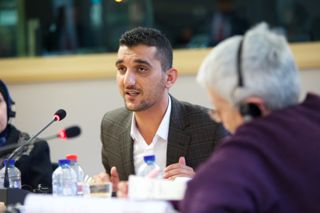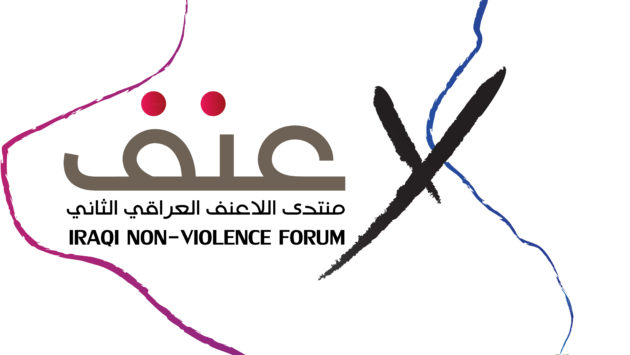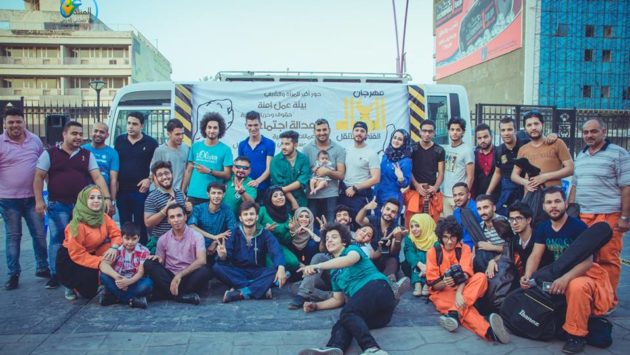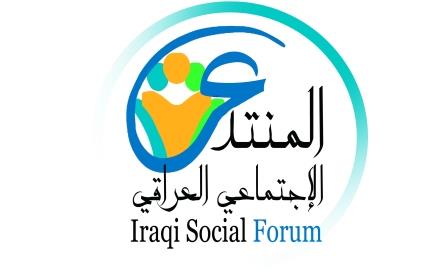Violence, Intolerance and the Future of Civil Peace in Iraq
Paper written for the Iraqi Social Forum participation in the WSF – Tunisia 2015.
By Husam Salim, Ezidi Solidarity and Fraternity League.
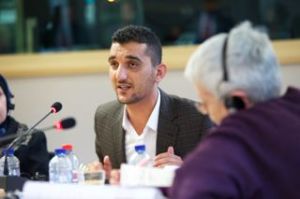
Ezidi Solidarity and Fraternity League
Discrimination is an old phenomenon in Iraq, with strong social roots: it has been enhanced and spread by many factors in Iraqi society. Discrimination against religious minorities, which has existed there for ages, is based upon the differences between subcultures and the general dominant culture, well beyond their religious ceremonies and rites. Discrimination practices are widespread in Iraqi culture on a daily and operative basis, and can be found in language, theatre, sports, university and schools, for instance. It is an unquestionable matter that discrimination plays a pivotal role in the instability of society, which disturbs peaceful coexistence in society in general and between individuals who are from different religious, tribal, ethnical and regional cultures — including social groups like “gypsies”.
Discrimination or hate speech against some groups represents one of the reasons for the lack of coexistence and the growth of intolerance. For example, let us consider hate speech coming from one person toward a specific Iraqi group: is it considered a crime leading to discrimination and undermining civil peace, or a representation of the speaker’s opinion who should enjoy freedom of expression? If we describe a whole sect or a whole religion with discriminating words, this will clearly undermine civil peace. It is necessary to have a legal system that protects civil peace and enhances coexistence, criminalizes all those who utter bad words about any social or gender group, and makes them legally accountable for their actions. Having such a legal system will enable us to build a society free of violence and intolerance.
Hate speech in public forums
What should the state, civil society, and intellectuals do to reduce and combat hate speech, especially in public forums like a mosque, church, temple, university, a school? Do we need a law on this matter to promote acceptance of others’ culture and human rights? If a political leader incites to violence, should we as civil society hold this leader accountable? What if it was a religious leader who incited to violence? What kind of accountability should we hold him to?
How do insurgent groups share with the State the monopoly on violence? What is the role of cross-country militias in that regard? All of these issues threaten coexistence and civil peace. Does civil society have a long-term strategy to play a pivotal role in undermining threats by the militia or tribes, the violent platform of some clergy, economic violence through unequal wealth distribution?
What makes the public accept hate speech in daily life and turn it into an institutionalized phenomenon, that comes from below (community) and above (authority) to produce a unique kind of intolerance, exclusive of Iraq? Has Iraq ever had an historic heritage of coexistence? Is it so easy to change the community’s mind so that it accepts sectarian intolerance?
It is a fact that after the fall of Saddam’s regime, Iraqi society lived for a while with no state or government until the CPA came along. There was no violence or intolerance during that period despite the absence of the state, and this gives hopes on the possibility for peaceful coexistence to be built in the Iraqi community.
Recommendations to build civil peace:
- Promoting fair division of wealth, which Iraq did experience
- Allowing participation of civil society effectively in public dialogue and renouncing violence
- Passing an Iraqi law criminalizing violence and discrimination
- Enforcing weapons’ control by the state only
- Giving women their role in society
- Building a collective national identity for all to identify in

